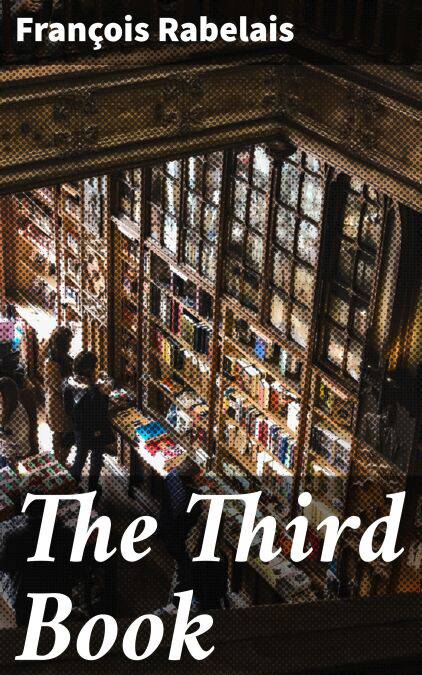
Je cadeautjes zeker op tijd in huis hebben voor de feestdagen? Kom langs in onze winkels en vind het perfecte geschenk!
- Afhalen na 1 uur in een winkel met voorraad
- Gratis thuislevering in België vanaf € 30
- Ruim aanbod met 7 miljoen producten
Je cadeautjes zeker op tijd in huis hebben voor de feestdagen? Kom langs in onze winkels en vind het perfecte geschenk!
- Afhalen na 1 uur in een winkel met voorraad
- Gratis thuislevering in België vanaf € 30
- Ruim aanbod met 7 miljoen producten
Zoeken
The Third Book E-BOOK
A Renaissance Journey Through Satirical Challenges and Philosophical Depths
François Rabelais
E-book | Engels
€ 1,99
+ 1 punten
Omschrijving
François Rabelais' 'The Third Book' is a satirical masterpiece that continues the adventures of the larger-than-life character Gargantua and his son Pantagruel. Through a series of outrageous and humorous episodes, Rabelais challenges societal norms and beliefs, employing a mix of high satire and low comedy. The book is known for its intricate wordplay, bawdy humor, and deep philosophical underpinnings, making it a complex and multi-layered literary work that rewards careful reading. Set in a medieval context, 'The Third Book' offers a sharp critique of the political and religious institutions of its time. Rabelais' innovative use of language and his exploration of human nature make this book a significant contribution to the literary canon. François Rabelais, a Renaissance humanist and monk turned physician, drew on his extensive knowledge of classical literature and philosophy to create 'The Third Book'. He was influenced by the humanist movement and the intellectual climate of his time, which is reflected in his blending of humor with intellectual discourse. Rabelais' own experiences and observations of society likely inspired the bold and rebellious tone of his work. I highly recommend 'The Third Book' to readers who appreciate clever satire, philosophical depth, and innovative literary techniques. Rabelais' work is a unique and essential part of literary history that continues to resonate with audiences today.
Specificaties
Betrokkenen
- Auteur(s):
- Vertaler(s):
- Uitgeverij:
Inhoud
- Aantal bladzijden:
- 223
- Taal:
- Engels
Eigenschappen
- Productcode (EAN):
- 4064066464301
- Verschijningsdatum:
- 9/04/2021
- Uitvoering:
- E-book
- Beveiligd met:
- Digital watermarking
- Formaat:
- ePub

Alleen bij Standaard Boekhandel
+ 1 punten op je klantenkaart van Standaard Boekhandel
Beoordelingen
We publiceren alleen reviews die voldoen aan de voorwaarden voor reviews. Bekijk onze voorwaarden voor reviews.









